When products from the countryside come to urban centers, participating in the demonstration of authenticity… students have more reason to seek answers behind these unforgettable real-time impressions.
OCOP story
Entities are required to have a product story when participating in the OCOP program. Tran Anh Thu, a third-year student of the Faculty of Social Sciences and Humanities, Department of Sociology, Can Tho University, discovered the OCOP story of Ut Tay facility was a long journey with many knots. Currently, Ut Tay has 4 typical OCOP products in the Mekong Delta region. Two of these have achieved national 5-star certification.
Students contacted the MDOG Club to ask how to support OCOP subjects. Photo: Ch.L
Ut Tay's product flow started in 2020 when it participated in the national target program "One village - one product". Ms. Vo Thi Phuong Trang, one of the two founders of Ut Tay, said that from sticky rice, rice and a family recipe, Ut Tay has realized the idea of making tonic wine, with the awareness of connecting family and society, connecting tradition and contemporary, connecting past and present. These products have also met the standards of "Typical rural industrial products", so is the story different?
Ut Tay wants to talk about the legendary Xa No canal and the Tay Hau River rice fields. In which, the facility only uses by-products such as broken rice to make wine. Thanks to Ut Tay's family of many generations preserving the traditional medicine, which has been useful since the time of reclaiming this land until today, and the inspiration not only to make wine but also products with healing properties.
The main character in the close, authentic story about a couple who built a super small business with the desire to go far, a super small starting point carrying a big dream in the entrepreneurial journey - although late but full of energy and confidence, making many people want to know how everything will turn out.
Wine is a product that is prohibited from advertising and has regulations on alcohol control. Turning the knot into a story with levels, Ms. Phuong Trang said that this really affects market access and building the Ut Tay brand. Therefore, instead of being sad, Ut Tay must be sober when choosing to prioritize investment and product upgrades. In particular, products for gifts, funerals, ceremonies and product research such as wine marinated in food, mixed with cocktails, meeting the need for diversification, are opening up new directions. In particular, wine soaked with medicinal herbs into "Massage Oil", a product beneficial to the health of users, has been highly appreciated in the first year.
The shift - focusing on developing products and brands towards healing, meeting the health care needs of both urban and rural people - also has "internal conflicts" when investment capital, costs - benefits cannot be measured... But Ut Tay understands that business is not simply "selling products", seeking immediate profits but "selling stories" that are meaningful, in line with the community's concerns.
"From the current business model, Ut Tay aims to become a Production, Trade and Service Company Limited associated with science and technology," said Ms. Vo Thi Phuong Trang: The initial successes in sales and profits are not much, but every time a user calls to order or introduces a new customer, a good impression of the place where you live always appears, understanding more about your hometown. That is the joy.
Small facilities, big dreams and the way to untie the knots, continue to overcome difficulties when acting locally - global thinking, self-reliance, creativity, always aware of resources, local resources to enrich product ideas... is the different story of OCOP and other programs. In fact, it is the story of survival, the development strategy of Ut Tay.
After merging administrative boundaries, moving to Can Tho City, Ut Tay entered a new journey and when meeting the conditions to upgrade the facility to an enterprise, that journey needs to be prepared right now according to a sustainable, practical strategy so that the future story has new, more vivid material.
Thao Nguyen fish sauce and its commitment
Tran Dai Luat, a student of Agricultural Business - Course 48, Faculty of Rural Development - Can Tho University, reported that every year, Aunt Bay (Le Thi Truong Han), owner of Thao Nguyen fish sauce facility, brews 8,000 liters of copper fish sauce, which is always in short supply. Perhaps consumers are afraid of the widespread sale of industrial fish sauce, so they return to traditional fish sauce? How did Aunt Bay make people trust Thao Nguyen fish sauce? Tran Dai Luat approached Aunt Bay's savory story.
"There is nothing else to do with snakehead fish, miscellaneous fish... we buy them, clean them and then ferment them with salt. The fermenting process is strictly carried out, fermenting 7kg of fish with 1kg of coarse salt, the fermenting time lasts more than 9 months. The juice is filtered through a ceramic system, then cooked again to increase the shelf life and make it easy to preserve. The fish sauce has a light brown color, a moderate salty taste; especially, no chemicals are used to enhance the flavor. The characteristic aroma, creating a strong impression, conquering gourmet diners... is because the fish sauce has a flavor close to nature.
It is said that fish sauce has been known since 27 BC and today there is much scientific evidence of the existence of a spice called Garum. No one expected that the heritage of fish sauce has a long history from ancient Roman times and is still preserved in Hamlet 3, Vinh Trung Commune, Vi Thuy District, Hau Giang Province (old). If Garum is an ancient spice known to the world today when found in shipwrecks, then traditional fish sauce and the way Aunt Bay preserves it, extending the historical story from the pioneering period and the Vietnamese culinary culture can be easily found in shops and grocery stores in Hau Giang (old).
Starting a business at the age of U60, Aunt Bay seemed at ease when saying that with the accumulated experience and taking advantage of the rich natural resources of the flood season, fish such as snakehead fish, goby fish, linh fish, miscellaneous fish... arriving at Thao Nguyen facility will be classified to process fish sauce or make fish sauce. In particular, goby fish is given priority to produce fish sauce.
Fish sauce made from freshwater fish, the highlight is Aunt Bay's snakehead fish, seasoning soup or stewing fish all make the rustic dish have a richer flavor. "Don't compare it with chemical fish sauce", Aunt Bay said: Try this fish sauce, try more snakehead fish sauce, linh fish sauce and especially snakehead fish sauce, you will see different levels but the core is still natural. Snakehead fish sauce, Aunt Bay's freshwater fish sauce participate in the national target program "Each village - one product", in the first round it received 3-star OCOP certification. Fermenting fish sauce or making fish sauce all have their own formulas and secrets. All go through a very long fermentation time and comply with principles so that traditional products do not violate food safety and hygiene regulations.
Fermenting fish in small jars, each jar holds 40kg - the family experience is to check every day and when the fish is ripe, pack it and sell it to the market. With the price of 140,000 VND/jar of snakehead fish sauce or 80,000 VND/jar of snakehead fish sauce and linh fish sauce... Aunt Bay creates jobs for people who exploit freshwater fish, for people who collect and transfer to the facility, for people who participate in the preliminary processing... Currently, the workforce participating in the peak chain is up to about 10 people.
Thao Nguyen fish sauce has become the torch that lights up OCOP Vi Thuy, originating from Hamlet 3, Vinh Trung Commune, when Hau Giang, Soc Trang and Can Tho City merged. Estimated output: Snakehead fish sauce reaches over 4.2 tons/year and Dong fish sauce exceeds 8,000 liters/year, the "coverage" is local grocery stores and shops. "Trying to increase the scale a bit, but the goods are still not enough to sell", said Aunt Bay.
Since the beginning of this year, after the authorities increased control and handling of fake food production facilities, especially fake fish sauce, market demand has doubled. "I have invested in more fermentation tanks and filtration systems, but the fermentation process must last a sufficient amount of time. If I have support from the authorities, I will expand the raw material purchasing area in the surrounding areas, continue to create more jobs for raw material suppliers and processors...", Aunt Bay said about her current wishes.
Looking at the products of Thao Nguyen facility, although the labels are still simple, the fish sauce is bottled in glass bottles instead of plastic bottles... every detail not only proves self-reliance, proactively innovating livelihoods but also the joint efforts of a community that both creates adaptive jobs, improves livelihoods and proves that rural residents are actively participating in the market with the guarantee of genuine products, close to nature, and committed to meeting food safety and hygiene standards.
Pour honey into life
Dac Thinh, a student of Agricultural Business - Course 48, Faculty of Rural Development - Can Tho University, seeks answers from a student of his school who dropped out...
"Someday, when we have the conditions, we will export honey" - Tran Minh Nim. Photo: DAI LUAT
Having recovered from his serious illness, Mr. Nim "honored" the honey that helped him recover quickly and began researching beekeeping instead of pursuing work at two motorbike repair shops. That was the second unforgettable turning point.
The first time, because of his family's difficult circumstances, business administration student Tran Minh Nim had to quit school to work as a car mechanic. This time, starting a beekeeping business was quite a bold move - not only for him but also for his family.
Mr. Tran Minh Nim, 38 years old, in Long My district, Hau Giang province (old), founder of Niem My Company Limited, recalls that in 2016, despite his diligence in researching, learning, and boldness in switching to beekeeping, the job was not easy because to fully understand the characteristics of bees and the technology of multiplying colonies... all of which required courage to pay the price because from the raising stage to the selling stage of honey - every stage was complicated.
Domestic bee colonies are prone to inbreeding and the Manuka honey bee from New Zealand is the fulcrum for change. When importing bee colonies for breeding, the Manuka honey bee is chosen because it is more resistant to diseases than other breeds, is famous for its gentleness, easy to tame, good working ability, and can exploit different flower sources. Getting used to the habits of imported bee colonies, breeding and multiplying colonies is a thorny process, but when bringing products to market, the competition with the "multi-faceted" honey products becomes more fierce.
Real products, why be afraid of tricks? Thinking so, he tried every way to apply digitalization to prove the origin, quality and publicize the selling price, actively participated in supply - demand connections; learned more marketing experience, created a Fanpage to sell products. Everything happened simultaneously. Up to now, he has multiplied about 1,000 bee colonies, sharing 400 colonies for the rural development project.
Explaining the reason for sharing the bee colony, Mr. Nim said: Currently, many types of poor quality honey compete in price, it is difficult for me to create momentum for real honey, so the more people raise bees and sell honey properly, the more the market will have a different view.
Surprisingly, this method not only creates an opportunity to change the income of honey beekeepers but also creates a team of reputable suppliers. Niem My Company concentrates on the source of goods, standardizes products sold to the market with an output of 45-50 tons/year, making Niem My Company's name on the e-commerce platform.
Depending on the blooming season, he brings his "good-natured" bee colonies to Vinh Long and Dong Thap to harvest honey from longan, rambutan, cajuput, etc. The products after each flowering season are carefully packaged, participating in the national target program "One village - one product". Currently, he has invested in a factory according to HACCP standards to ensure production safety criteria and ensure good honey for consumers. Niem My Company has a successful roadmap with products recognized as 4-star OCOP such as cajuput honey recognized in 2018, royal jelly recognized in 2022, rambutan honey recognized in 2023, natural pollen recognized in 2024.
The lives of 200 members of Mr. Nim's beekeeping network have become much better than before. People who used to be in poverty now have an additional income from beekeeping of 6-7 million VND/month. 10 rural workers who used to be worried about leaving their hometown to go to Binh Duong or staying to work for hire, now have jobs at Niem My Company, with stable income.
Tran Minh Nim shared his thoughts about the future: "Someday, when we have enough conditions, we will export honey. Other households can join the beekeeping model - welcoming eco-tourists. The honey brand and the entire ecological conservation network community will be the highlight attracting tourists to Long My to see beekeeping and pouring honey for life.
CHAU LAN
Source: https://baocantho.com.vn/chuyen-doi-va-goc-nhin-sinh-vienbai-cuoi-tim-cau-tra-loi-tu-tam-long-a190149.html


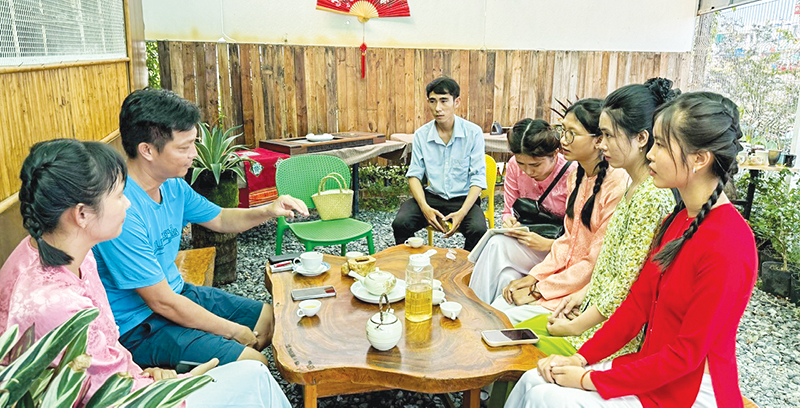
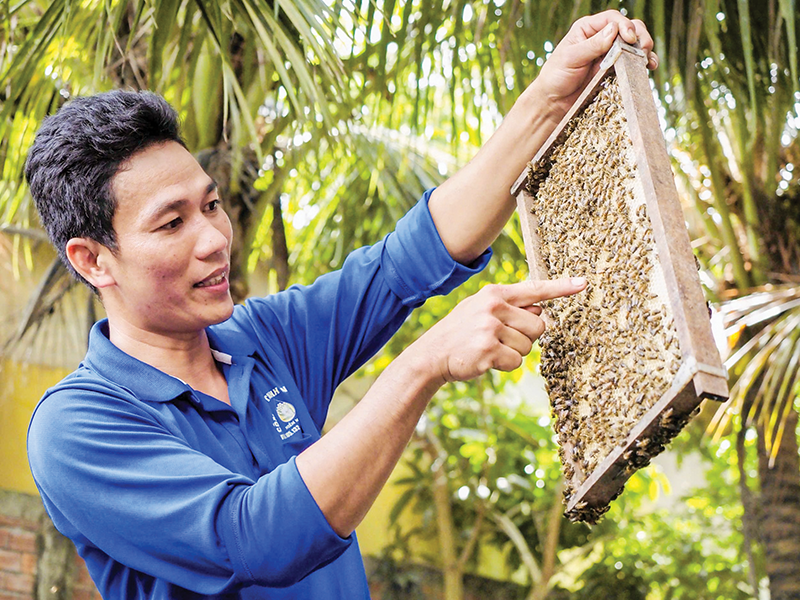






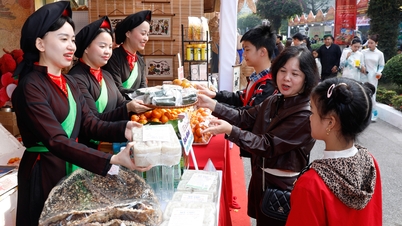



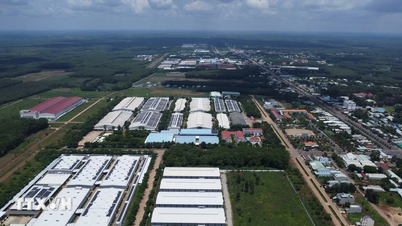



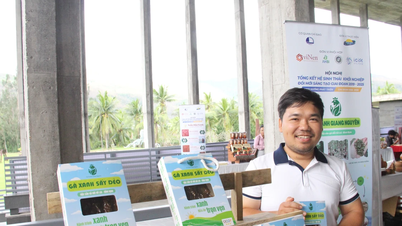

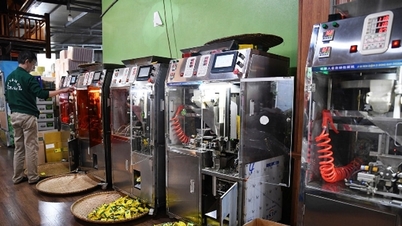














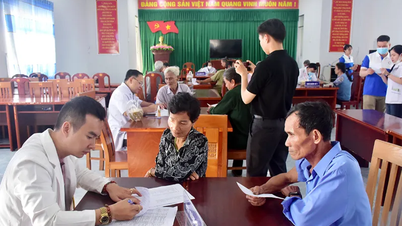
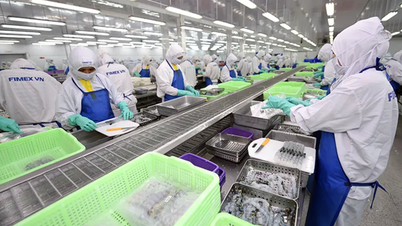

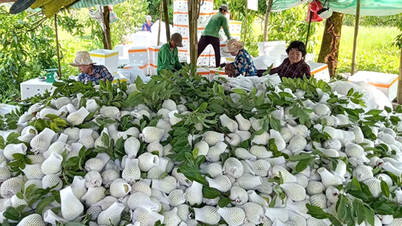
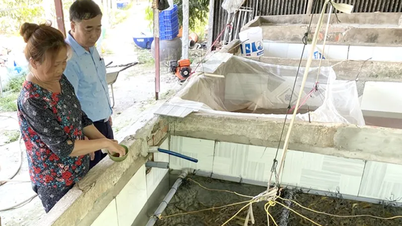



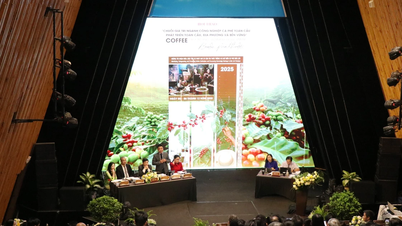








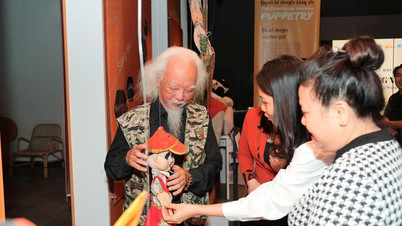

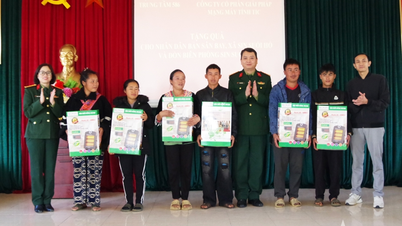

































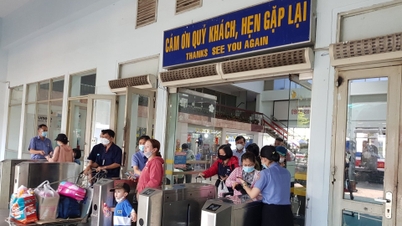

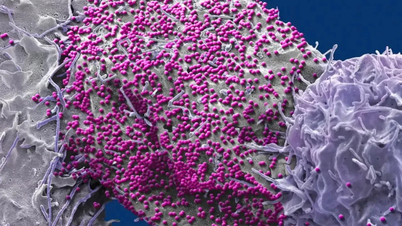



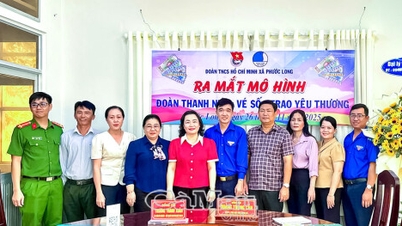



















Comment (0)